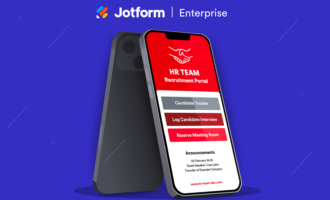Top enterprise data storage solutions
As your organization handles and secures an ever-increasing amount of data, it’s never been more important to have a strong data storage strategy in place. That’s where enterprise data storage solutions come in. An enterprise data storage solution is a technology platform that helps large businesses manage, protect, retrieve, store, and share the massive amounts of data they collect and use daily.
Though some enterprises maintain their own infrastructure for data storage, more organizations are turning to cloud-based storage systems. Cloud-based storage solutions offer a more affordable way of protecting your data on a virtual infrastructure.
When it comes to deciding on the best data storage solution for your enterprise, there are a few important factors to keep in mind. One is scalability. Alex Bekker, head of the data analytics department at ScienceSoft, says the architecture should be conditioned to upscale and downscale with your business, with no impact on processing capacity.
Another factor is data security. Your solution should “provide encryption and access control mechanisms, and integrate with security tools,” Bekker explains. And finally, a solid storage solution should offer unlimited connectivity and support on multiple platforms.
The following enterprise data storage solutions check off all those boxes and then some. Considered the leaders in the market, these cloud-based service providers consistently earn high ratings.
1. Amazon Web Services (AWS)
Amazon Web Services currently dominates the cloud-based storage market. It offers a pay-as-you-go cloud storage model, meaning you only pay for the storage you use. AWS has five offerings that span all three types of cloud storage: Amazon Simple Storage Service and Glacier (for object storage), Amazon EBS and Amazon EC2 (for block-level storage), and Amazon EFS (for file storage). AWS is highly regarded for its flexibility, security, and speed of data transfers.
2. Microsoft Azure
Microsoft Azure is a popular option because it has a versatile storage system that’s secure, scalable, accessible, and durable. The software encrypts all your data and has a number of access control options. It offers three account types (Basic, Standard, and Premium), five storage types, and four tiers of redundancy.
This is a great solution if you’re already using other Microsoft solutions, as it will easily integrate with your current systems. According to Microsoft, 95 percent of Fortune 500 companies use Azure.
3. Dell EMC
Dell EMC offers what it calls “multi-cloud agility with zero data gravity,” which means it allows you to simultaneously tap into different cloud locations and access your data in various storage locations. Another major perk is that it uses native array replication, letting you safely and securely move your data from on-premises into the cloud. This solution can reduce application outages and latency by 90 percent, according to a study commissioned by Dell.
4. IBM
IBM provides a variety of storage options, such as hybrid storage arrays and flash storage. These storage services help reduce customer costs by moving data onto the most price-effective storage devices. In terms of cloud solutions, the company offers Cloud Object Storage, Cloud Block Storage, and Cloud File Storage. These three types of solutions refer to the different ways data can be filed and stored. IBM storage solutions are a great fit for enterprises that already use IBM systems.
5. Google Cloud
Google Cloud could be considered the underdog as it isn’t as robust in its service offerings as some of the others on this list. However, what it lacks in cloud services it makes up for in performance. It can collect and leverage every kind of data, from user and machine data to geographic data. It also has advanced security and privacy features and creates near real-time logs anytime someone interacts with your data. Spotify, Home Depot, and PayPal are just a few notable companies that rely on Google Cloud.
6. Hewlett Packard Enterprise (HPE) Storage
Hewlett Packard Enterprise customers whose data is either on-premises or in the cloud (or both) can take advantage of HPE Storage offerings. HPE Storage aims to make it easier for users to store, manage, and protect all their data types, in any location, through the use of one unified platform. Among its popular offerings are HPE GreenLake (for file and block storage), HPE Primara and HPE Alletra 9000 (for mission-critical applications); and HPE Nimble Storage and HPE Alletra 6000 (for business-critical applications).
According to Gartner — which has named HPE a leader in the primary storage market for four years running — HPE products and services are well suited for online transaction processing (OLTP) and virtualization/virtual desktop infrastructure (VDI) use cases. Customers may choose to only pay for what they consume, and both HPE Alletra and GreenLake have a 100 percent data availability guarantee.
7. Nutanix Unified Storage
Nutanix Unified Storage allows users to manage their file, block, and object storage on a single platform, and the company claims that even non-storage experts can use it to handle most day-to-day data management tasks easily. Its scalable consumption model allows you to pay as you grow, using only as much or as little storage space as you need. It also supports a “zero-trust” security philosophy and recently added new features to protect against ransomware attacks.
Gartner has named Nutanix Unified Storage a Visionary in the Magic Quadrant for Distributed File Systems and Objects Storage for two years in a row.
8. Pure Storage
Pure Storage is an all-flash data storage platform that provides block, file, and object storage technology and services. (Flash storage is considered advanced storage technology because it’s more operationally and environmentally efficient than hard-drive–based storage solutions.)
The company promises an “uncomplicated” storage experience for enterprise users, including simple setup, daily management, and excellent support (which many users have commented on in software reviews). You pay only for what you use, and it offers a variety of subscription services that can help monitor your usage and make it easy to scale up or down.
9. Zadara
Zadara’s zStorage offering supports storage for block, file, and object data types both on-premises and in the cloud. Zadara also has a team of experts who can provide advice and troubleshooting help 24-7 as well as do periodic upgrades on your hardware and software. It connects to all major cloud providers, scaling up or down takes just minutes, and you only pay for the capacity and features you use — no long-term commitments involved. Zadara has been recognized as a Visionary in the 2022 Gartner Inc. Magic Quadrant for Primary Storage.
9. NetApp
NetApp works with organizations to build their own unique “data fabric” (architecture) to facilitate data storage and management, whether that data is on-premises, in the cloud, or both. Its ONTAP solution is the only enterprise-grade storage offering that’s available both on-premises and as a first-party native service supported by AWS, Azure, and Google Cloud.
NetApp has robust ransomware protection and recovery features, and it guarantees maximum storage efficiency. It was named a leader in the 2022 Gartner Magic Quadrant for Primary Storage.
When it comes to finding the right solution for your organization, one of these 10 industry leaders might be right for your company’s data storage needs.
For related information, view our in-depth guide on enterprises and enterprise resource planning.























Send Comment:
6 Comments:
More than a year ago
As an expert in enterprise app development, I've had the privilege of working with various data storage solutions over the years. This comprehensive list of the top 10 enterprise data storage solutions is incredibly valuable for businesses looking to optimize their data management strategies. Each solution offers unique features and advantages, making it crucial for enterprises to partner with a reputable Enterprise app development company. They play a pivotal role in ensuring seamless integration and customization, tailoring these storage solutions to specific business needs. It's essential to have a trusted partner in the development process to unlock the full potential of these powerful storage solutions.
More than a year ago
American Web Developers is a company that provides professional web development services. We are passionate about creating beautiful, functional, and easy-to-use websites with an intuitive user experience.
More than a year ago
For companies that can’t decide on which data storage solution is suitable, it’s good to know that each platform has pros and cons! And sometimes it's get frustrated to differentiate between data warehouse vs database for start-up companies. I tell more on the different of these two here:
More than a year ago
Thanks for the overview of functional data storage solutions. I want to recommend the helpful article about the integration of data storage solutions
More than a year ago
Thanks, Frank, for sharing the nice and very informative article. I know 2 out of them thanks for sharing all of them. For more info visit our website-
More than a year ago
nice information and very informative thanks for share this stuff!